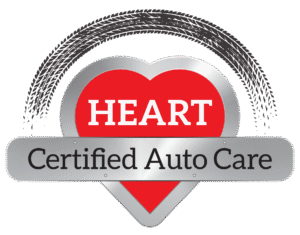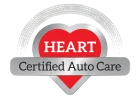New tires can certainly be a waste of your household, but tires that are both safe and handleable for cars, trucks, and SUVs on the road are essential. By taking some simple precautions to help keep your tires in good condition, you can prolong the life of your tires and avoid the repair costs that can result from worn tires.
And we are sharing with you top ways to help prevent tire repairs:
- Routine Maintenance should be performed at a local tire service shop.
Your local tire service shop’s expert technicians understand how to ensure that your tires wear evenly and last their full life expectancy. Routine maintenance services will aid in this endeavor. You should include the following services in your routine maintenance schedule:
1. Tire Rotation
Not all tires wear at the same speed, so regular rotation of where each tire is mounted on the vehicle will make the wear more uniform and extend the life of the tire. It is a good practice to rotate the tires every time you change the oil.
2. Tire Alignment
This service ensures that the tires/wheels are in the correct position with respect to the road and each other and rotate optimally. When the tires are properly tuned, uneven wear on the tires is minimized. Alignment should be checked at least once a year or after hitting a curb, pothole, or another obstacle.
3. Tire Balancing
Making sure that the weight is evenly distributed over the tire diameter, it avoids uneven tread wear and excessive vibration. Both of these allow for quick tire repairs and replacements. Did you check the tires if you noticed vibrations on the steering wheel or running board while driving?
4. Visual Examination of Tires
Most regular maintenance inspects the tires for uneven or excessive wear, and for foreign objects and cuts on the treads and sidewalls.
Incorporating the above services into your vehicle’s regular preventive maintenance routine will greatly help eliminate the need for tire repairs and extend tire life.
- Keep an eye on the air pressure in your tires, the valve stems, and the overall condition of your tires.
Another important thing you can do to protect your tires is to keep them inflated properly. Most new cars are equipped with a Tire Pressure Monitoring System (TPMS). This warns you when the tires are low on air. However, on older vehicles, you will need to manually check the air pressure using a tire pressure gauge. It is advisable to check the air pressure of the tires, including the spare tire, at least monthly. If you find that one of the tires is low, inflate it yourself or take it to your nearest store and inflate it as soon as possible.
Making sure your tires are always at the correct air/pneumatic pressure will also help you maintain optimal fuel economy. If the tire pressure is insufficient, the tire will roll more and more. It also means that your engine has to work harder to move it forward.
You should also regularly check the valve stems of your tires for air leaks. The valve stem is part of the tire with a cap that loosens the screws to add air. Even the slightest amount of dirt on the valve can cause air leaks. Also, the valve stem becomes brittle over time and can break and lead to air leaks.
Tire treads and sidewalls should also be checked between regular tire services. If the tire is clogged with debris, if the tire is rotten and cracked during drying, or if the tread is extremely worn, the tire should be repaired or replaced immediately.
You can check the tire tread yourself using the “Penny Test”. Simply take the penny and stick it in the tread groove of the tire with Lincoln’s head down. The more you cover Lincoln’s head, the more profiles you have and the safer you can drive your tires. Therefore, if you can see Lincoln’s entire head, you have stepped off and need to replace the tires.
- Keep an eye on what you’re driving over.
This may sound obvious, but be aware of what you’re driving. If you see debris or dents on the road ahead, change lanes or use a different route to avoid it. All of this can cause a flat tire or a flat tire. Also, avoid driving on unpaved roads if possible (unless you are using off-road tires). This causes the tire to wear faster and eliminates the possibility of the tire bursting from rocks and other debris.
Also, if possible, I would like to avoid driving near the construction site. Roads near construction sites are often full of nails, screws, or other sharp objects that can break into tires and quickly puncture.
- Tires Shouldn’t Be Overloaded
Check the label on the inside of the driver’s door to find the maximum weight the vehicle can carry. When loading a vehicle, it must not exceed the specified maximum weight. Overloading the vehicle can damage the tires.
If you need to carry heavy loads, increase the tire pressure slightly to allow the vehicle to support the weight. The tire sidewalls show how much weight the tire can support when inflated to maximum pressure (also on the side of the tire).
- Examine Your Brakes
When the brakes wear, the tires wear unevenly and can cause a flat tire. Check the brakes regularly. Especially when they aren’t working as expected and you’re worried about them.
It is also relevant to avoid hard and fast stops (and starts) as much as possible to avoid excessive tire wear.
When it comes to tire service, you can rely on our professionals.
Of course, there are times when flat tires are unavoidable. However, by using the above-mentioned prevention methods, you can help extend the life of your tires and reduce the need for tire repair as much as possible.
If you need preventive tire service, or if you find yourself in a situation where you need to perform repair work, you can rely on an experienced HEART Auto Care expert. Book an appointment with us now!





